Oversight and leadership changes meant to “safeguard its charism,” says Francis. The head will not be a bishop
By Courtney Mares (CNA)
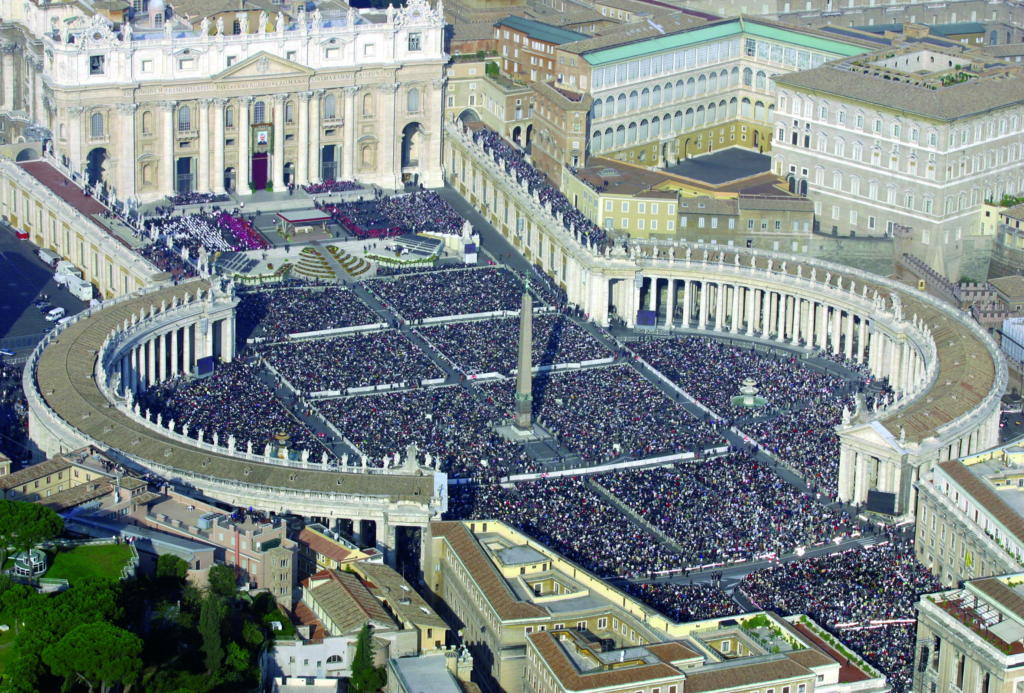
October 6, 2002, St. Peter’s Square: Canonization of Josemaria Escriva De Balaguer, founder of Opus Dei (Photos Galazka)
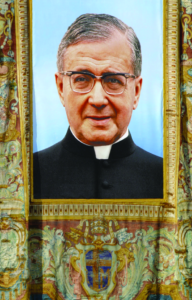 Pope Francis issued a document on July 22 that changed the oversight of Opus Dei. It also decreed that its leader, the prelate, can no longer be a bishop.
Pope Francis issued a document on July 22 that changed the oversight of Opus Dei. It also decreed that its leader, the prelate, can no longer be a bishop.
In the motu proprio the Pope confirmed the Catholic organization and urged its members to safeguard its charism in order “to spread the call to holiness in the world, through the sanctification of one’s work and family and social occupations.”
“It is intended to strengthen the conviction that, for the protection of the particular gift of the Spirit, a form of government based more on the charism than on hierarchical authority is needed,” Pope Francis wrote. [Editor’s note: The special “charism” of Opus Dei is often said to be the sanctification of the lay person in and through the work of daily life, not necessarily by entering into a convent or religious order.]
The motu proprio, entitled Ad charisma tuendum (“To guard the charism”), contains six articles that went into effect on August 4. Among the changes, the prelate of Opus Dei will no longer be ordained a bishop and the prelature will fall under the competence of the Vatican Dicastery for Clergy. This change is in accord with the Pope’s reform of the Roman Curia in the Apostolic Constitution Praedicate Evangelium.
Opus Dei is a Personal Prelature made up of lay men and women and priests founded by St. Josemaría Escrivá in 1928. Escrivá called the organization Opus Dei to emphasize his belief that its foundation was a “work of God” — or, in Latin, “Opus Dei.”
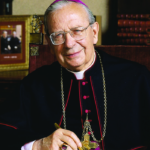
Blessed Bishop Alvaro del Portillo, St. Josemaría’s first successor as the head of Opus Dei (CNS photo/courtesy of Opus Dei Information Office)
Msgr. Fernando Ocariz, the current prelate of Opus Dei, was not ordained a bishop when taking office in 2017, during the current pontificate. Both his predecessors, Javier Echevarría and Álvaro del Portillo, had been made bishops by St. John Paul II. The founder of the movement, St. Josemaría, died before the prelature was established. In his response to the changes made by Pope Francis on July 22, Ocariz said: “It is a concretization of the Holy Father’s decision to place the figure of personal prelatures in the Dicastery for the Clergy, which we filially accept.”
While the prelate will no longer become a bishop under the changes, he will receive the honorary title of protonotary apostolic.
In his decree, Pope Francis also changed some of the text of Opus Dei’s constitution, Ut sit, which was issued by John Paul II in 1982.
For example, the constitution formerly asked the prelate to submit a report on the apostolic work of Opus Dei directly to the Pope every five years. Under the new changes, the prelate will now be required to submit a report to the Dicastery for the Clergy every year.
Article six states that “all questions pending at the Congregation for Bishops relating to the Prelature of Opus Dei will continue to be treated and decided by the Dicastery for the Clergy.”
“The motu proprio reminds us that the government of Opus Dei must be at the service of the charism… so that it may grow and bear fruit,” the organization states on its website.
“Ad Charisma Tuendum”
Apostolic letter issued “motu proprio” of the Supreme Pontiff Francis
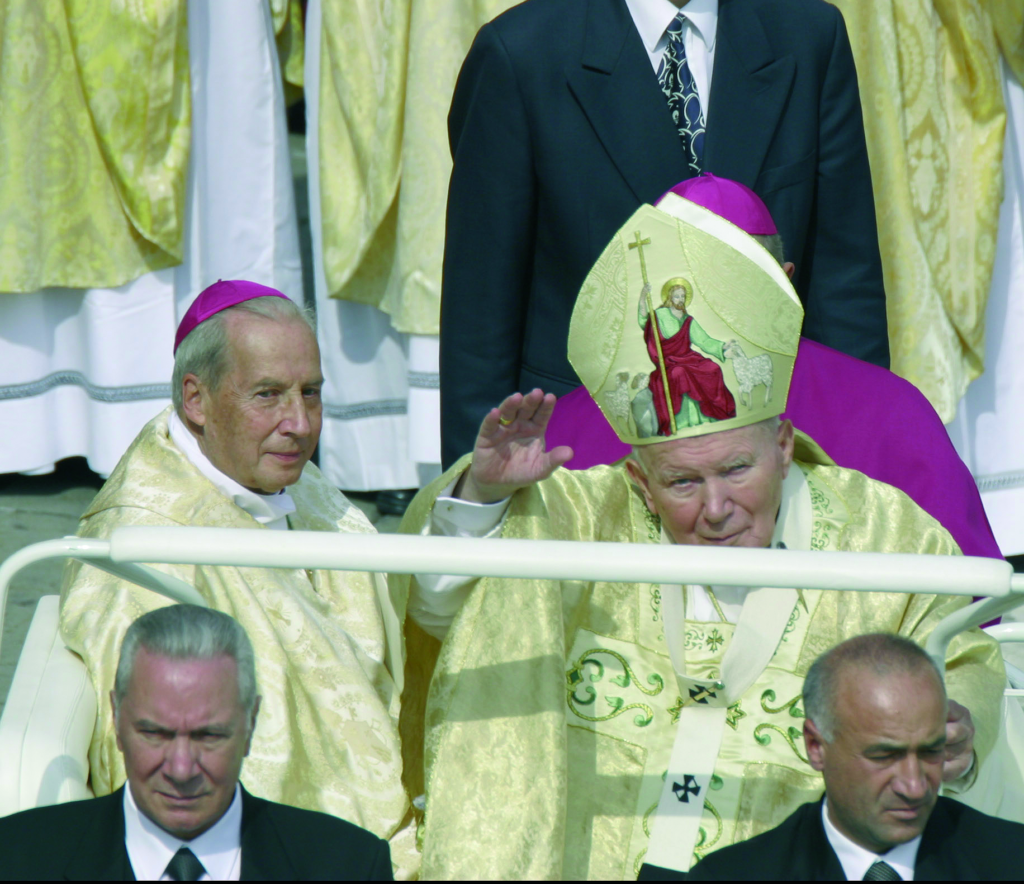
John Paul II with the second successor, Bishop Javier Echevarria Rodriguez, Prelate of Opus Dei, during the canonization ceremony for the founder
In order to safeguard the charism, my predecessor Saint John Paul II, in the Apostolic Constitution Ut sit of 28 November 1982, erected the Prelature of Opus Dei, entrusting it with the pastoral task of contributing in a special way to the evangelizing mission of the Church. Indeed, in accordance with the gift of the Spirit received by Saint Josemaría Escrivá de Balaguer, the Prelature of Opus Dei, with the guidance of its Prelate, carries out the task of spreading the call to holiness in the world, through the sanctification of work and family and social commitments by means of the clerics incardinated therein and with the organic cooperation of the laity who devote themselves to apostolic works (cf. cann. 294-296, CIC).
My venerable Predecessor stated that: “With very great hope, the Church directs its attention and maternal care to Opus Dei …so that it may always be a valid and effective instrument of the saving mission that the Church fulfils for the life of the world” [cf. Preamble Ut sit.].
This Motu Proprio is intended to confirm the Prelature of Opus Dei in the authentically charismatic sphere of the Church, specifying its organization in keeping with the witness of the Founder, Saint Josemaría Escrivá de Balaguer, and with the teachings of conciliar ecclesiology on personal Prelatures.
By means of the Apostolic Constitution Praedicate Evangelium of 19 March 2022, which reforms the structure of the Roman Curia in order to better promote its service in favour of evangelization, I considered it appropriate to entrust to the Dicastery for the Clergy the competence for all that pertains to the Apostolic See regarding personal Prelatures, of which the only one erected so far is that of Opus Dei, considering the preeminent task carried out in it, according to the norm of law, by clerics (cf. can. 294, CIC).
Wishing, therefore, to protect the charism of Opus Dei and to promote the evangelizing action carried out by its members in the world, and at the same time having to adapt the provisions relating to the Prelature to the new organization of the Roman Curia, I order the following norms be observed.
Art. 1 – The text of Art. 5 of the Apostolic Constitution Ut sit shall henceforth be replaced by the following text: “In accordance with Art. 117 of the Apostolic Constitution Praedicate Evangelium, the Prelature depends on the Dicastery for the Clergy, which, according to the subject matter, shall evaluate the relative questions with the other Dicasteries of the Roman Curia. The Dicastery for the Clergy, in dealing with the various questions, shall make use of the competencies of the other Dicasteries through appropriate consultation or transfer of files”.
Art. 2 – The text of Article 6 of the Apostolic Constitution Ut sit shall henceforth be replaced by the following text: “Each year the Prelate shall submit to the Dicastery for the Clergy a report on the state of the Prelature and on the fulfilment of its apostolic work”.
Art. 3 – By reason of the amendments to the Apostolic Constitution Ut sit brought about by this Apostolic Letter, the proper Statutes of the Prelature of Opus Dei shall be suitably adapted upon the proposal of the Prelature itself, to be approved by the competent bodies of the Apostolic See.
Art. 4 – While fully respecting the nature of the specific charism described in the above-mentioned Ap ostolic Constitution, it is intended to strengthen the conviction that, for the protection of the particular gift of the Spirit, a form of governance based on charism more than on hierarchical authority is needed. Therefore, the Prelate shall not be honored with the episcopal order.
Art. 5 – Considering that the pontifical insignia are reserved for those who are conferred the episcopal order, the Prelate of Opus Dei is granted, by reason of his office, the use of the title of Supernumerary Apostolic Protonotary with the title of Reverend Monsignor and therefore may use the insignia corresponding to this title.
Art. 6 – As from the entry into force of the Apostolic Constitution Praedicate Evangelium, all matters pending at the Congregation for Bishops concerning the Prelature of Opus Dei shall continue to be dealt with and decided by the Dicastery for the Clergy.
I decree that this Apostolic Letter in the form of a Motu Proprio be promulgated by publication in L’Osservatore Romano, entering into force on 4 August 2022, and then published in the official commentary of the Acta Apostolicae Sedis.
Given in Rome, at Saint Peter’s, on 14 July 2022, the tenth year of the Pontificate.
+FRANCIS

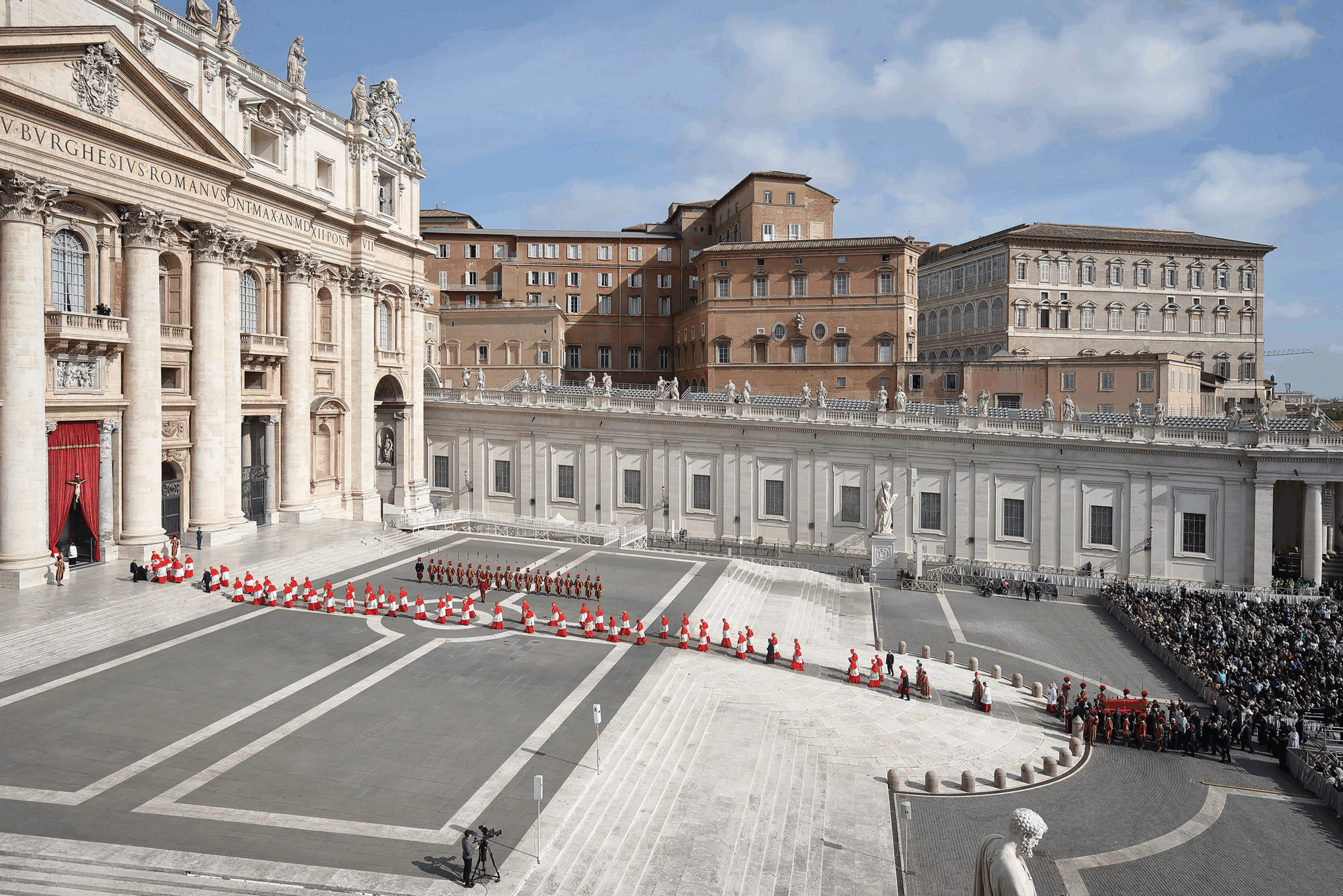




Facebook Comments